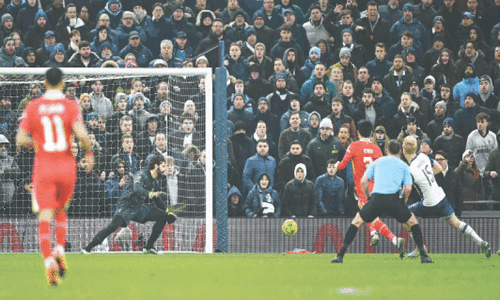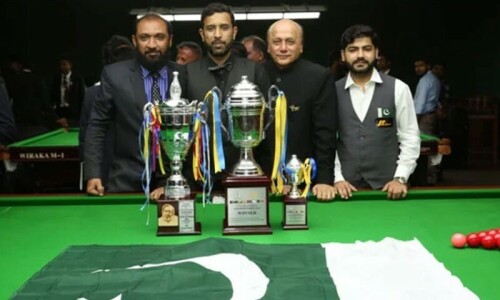THE recent announcement of the new coaching panel by the Pakistan Cricket Board (PCB) will hopefully usher the national team in a new era of accomplishments and my good wishes are with Waqar Younis, Mushtaq Ahmed and Moin Khan.
Since it is the beginning of a new phase, the recent past should not be dragged in but, in order to avoid unnecessary controversies, I would urge the PCB not to advertise posts of the coaching staff or those of the selection committee in future. Since the Board is fully authorised to appoint a person of its liking, the practice of prior advertisements, in my opinion, isn’t required.
Like others, I also hold a viewpoint on the recent appointments. Since neither the ICC nor the PCB endorsed the Malik Qayyum inquiry report, some tainted players have been associated with cricket-related activities, such as commentary on TV channels and coaching assignments, around the world.
I do respect both the ICC and the PCB. However, if it had been in my hands, I would not have let any of the tainted players to be involved in cricketing affairs.
If the PCB and the ICC don’t recognise the Malik Qayyum inquiry report, then why is Salim Malik still suffering? The other tainted players extended their full support to Malik, otherwise he would not have been able to carry out the wrongdoings. When others are free, the ban, on Malik, should also be lifted.
On my part, I refrained from joining the PCB because I can’t work with tainted players. This is my personal decision and if the PCB doesn’t agree with me, I can’t help them.
Najam Sethi has said that he had planned to make me a very powerful chief selector who could have dealt with match-fixers and the players having dubious reputation.
But since Mr Sethi himself is now hiring mostly the tainted former players to various posts in the cricketing set-up, I would like to ask: how would I have become a strong chief selector in the presence of all those tainted players? I, in fact, would have become weaker in that situation.
Furthermore, the ICC policies in curbing wrongdoings are also confusing, rather based on a pick-and-choose philosophy.
Danish Kaneria is a prime example of injustice. In his case, the England and Wales Cricket Board (ECB) has failed to produce any concrete evidence, yet a world-class performer has been sidelined. The home board, PCB, has also been negligent in this regard but on the other hand extreme support is being provided to Mohammad Amir, a convicted cricketer. All this, unfortunately, indicates that not just the PCB but the ICC as well is willing to support tainted and convicted players.
Coming back to the Kaneria case in which the ECB and ICC were very focused on Arun Bhatt’s involvement with Kaneria.
But it would be very interesting to recall that Bhatt, in 2006, had a very good relationship with some of the PCB officials. I am not accusing the entire PCB management but some of the officials did misuse the name of the PCB to maintain ties with Bhatt during the Pakistan-India series of 2006.
The anti-corruption unit of the ICC did hold a probe into the connections between Bhatt and some PCB officials by visiting Lahore but the result was mere warnings. Apart from a few officials, Kaneria and others were also interviewed. Everybody, but Kaneria, was let off the hook. Why this double standard?
I have pictures of the PCB officials in Bhatt’s company but have no intentions to make them public.
However, at the same time, I believe the PCB, ECB and the ICC should reconsider the case of Kaneria as well as that of the suspended BCCI president, N. Srinivasan, who despite having all the doubts, not only attended the ICC meeting but also enjoyed full support from other boards and the game’s world governing body.
That’s unfair and, in fact, a scar in the face of the zero-tolerance mantra of the ICC and other member boards.
Unearthing corruption in cricket is the responsibility of the ACSU which, I am afraid, has failed to fulfil the purpose of its establishment so far. Ever since its formation, some 14 years ago, the unit reportedly cost the ICC some $5.5 million (£3.25 million) annually. Even after such a staggering expenditure, the ACSU has not been able to detect or uncover a single major case of corruption.
If the ICC wants to cleanse the game, it has to look into the weaknesses of the ACSU as well as ensure an across-the-board implementation of its policies. Otherwise, the shame will keep on disturbing the game.— The writer is a former Pakistan captain
Published in Dawn, May 15th, 2014















































Dear visitor, the comments section is undergoing an overhaul and will return soon.